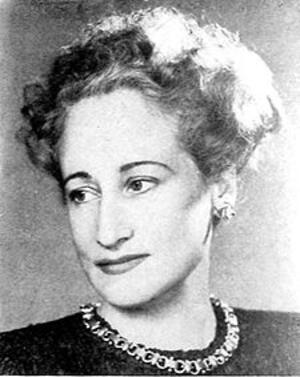Death of prolific screenwriter and novelist Vera Caspary
A graduate of the Chicago public school system, Vera Caspary worked as a stenographer, a copywriter, the director of a mail-order school, and the editor of Dance Lovers Magazine before she became one of the most prolific writers of her age.
Born on November 13, 1899, in Chicago, Illinois, Caspary made her living writing articles, plays, novels, and screenplays as she moved from New York to Chicago to Hollywood. Once an idea took root in her mind, she would reformat the result from one genre to another. One of her early successes was Suburb, a forty-page original story written over a weekend for which Paramount paid her $2,000. She admitted later that she rewrote and resold the plot of this story eight times over the years.
Her most renowned work was the screenplay for the film Laura, which she adapted from her own novel and play. Moving beyond the traditional murder mystery with a brilliantly constructed plot involving complex characters interacting on several levels, Laura might well be considered the first psychothriller. The 1944 film, directed by Otto Preminger and starring Gene Tierney in the title role, has become a classic. She received awards from the Screen Writers Guild in 1948 for A Letter to Three Wives and in 1967 for Les Girls.
In The Secrets of Grown-Ups (1979), her autobiography written when she was 80, Caspary confessed: "I've known rejection enough to make a sane person quit but, having known the raptures and torments of the storyteller, I can no more stop writing than stop breathing." Her life as described in Secrets spanned the Roaring Twenties in New York, Prohibition in gangster Chicago, the world in the grip of the Depression, American intellectuals embracing (and becoming disillusioned by) communism, the romanticizing of the Spanish Civil War, London during World War II, the first reactions to the Concentration Camps, postwar Europe, and Hollywood in the McCarthy era.
As she wrote in Secrets, “This has been the century of The Woman and I know myself fortunate to have been part of the revolution. In another generation, perhaps the next, equality will be taken for granted. Those who come after us may find it easier to assert independence, but will miss the grand adventure of having been born a woman in this century of change.”
Source: “Vera Caspary,” Jewish Women: A Comprehensive Historical Encyclopedia; “The Grand Adventure of Vera Caspary,” Bookslut.com.



